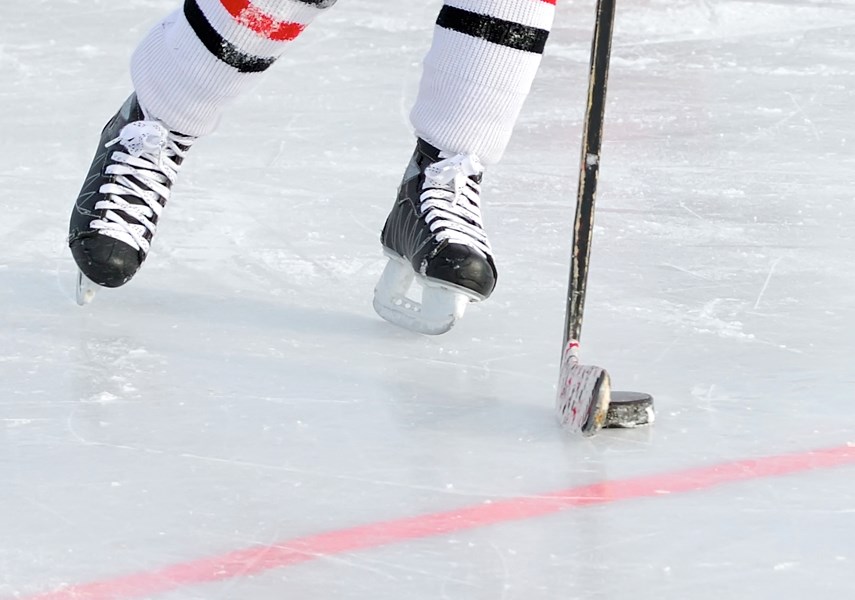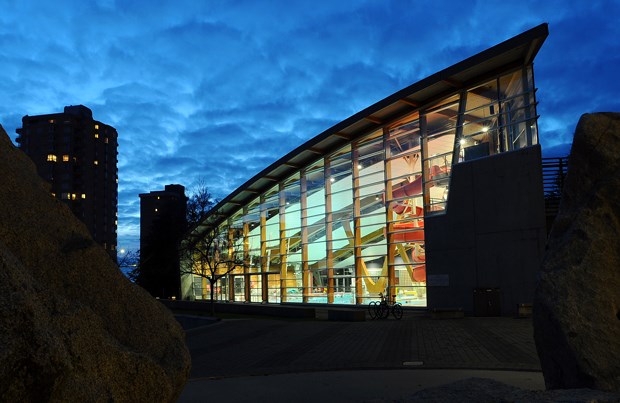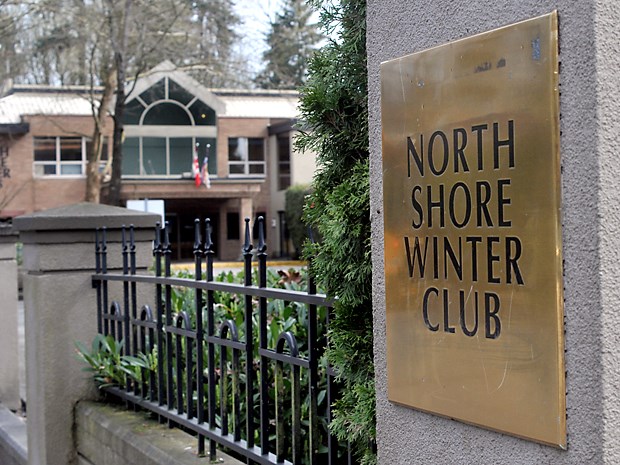Two private sports clubs on the North Shore are dealing with the fallout from recent COVID-19 exposures in their facilities.
Spectating areas where parents previously watched their kids practice hockey and tennis have been closed at the North Shore Winter Club and stricter protocols have been put in place after at least two members – an adult and a youth hockey player – recently tested positive for COVID-19.
Vancouver Coastal Health issued an order to close spectator areas after a recent COVID-19 exposure at the private club, because people in those areas were not maintaining a proper physical distance from each other, according to a notice sent to members.
Members of the club were warned of possible exposure to an adult who tested positive, who had been at the club Sept. 24 to 26.
A team of young hockey players at the club was also told to self-isolate after a teammate tested positive around the same time, according to an earlier notice. Those players have since been cleared to go back on the ice.
In a recent update to members, club management said the last reported case among members was Oct. 4.
One parent who is a member of the club told the North Shore News while she thought protocols were generally being followed, she did see parents crowding too closely in the spectator areas during some hockey player assessments in September.
According to viaSport’s provincial return to sport rules, spectators are allowed only if they are able to maintain appropriate physical distancing.
Joanna Hayes, general manager of the North Shore Winter Club, declined to comment on the recent situation that led to the closure of the spectating areas.
In an email, Hayes said the club “receives regular guidance from various health authorities and sports organizations and we’ve been closely in touch with them over the past few months in conjunction with constantly enhancing our protocols in order to prevent and/or contain the spread of COVID-19.”
The North Vancouver Minor Hockey Association has not allowed parent spectators inside arenas during its return to play this fall, and has also warned parents not to gather outside.

The winter club is now requiring members to wear masks at all times inside the facility except when exercising. The club has also purchased electrostatic sprayers, which give disinfectants a charge so they cling to surfaces. Additional air purifiers have also been set up in some areas of the club.
Meanwhile, West Vancouver’s Hollyburn Country Club is also dealing with a potential COVID-19 exposure.
A notice from Vancouver Coastal Health went to members and staff this week warning of a possible exposure to the virus between Oct. 1 and 6.
There were no further details given in the letter about which areas of the club may have been impacted. CEO Ed McLaughlin said the club has not received any additional information.
He said the club has COVID-19 safety protocols in place and is regularly inspected by both health officials and WorkSafeBC.
In both North and West Vancouver, many public recreation programs and facilities for both children and adults have been reopened, including swimming, fitness classes, gymnastics, dance and karate.
In North Vancouver, community recreation centres and the North Vancouver Tennis Centre are now open. The Delbrook pool is slated to open in late October.
Numbers in rec classes are being limited to ensure physical distancing and there are no spectators or drop-ins allowed, said Anne Rodgers, spokeswoman for the North Vancouver Recreation Commission. Everyone must sign up for a time slot or class in advance. Change rooms have also remained closed.
The situation is similar in West Vancouver, said spokeswoman Michaela Garstin. All recreation centres there are now open, but with reduced hours of operation. Facilities like change rooms, hot tubs, saunas and steam rooms also remain closed. Both Garstin and Rodgers said the municipalities haven't been made aware of any COVID-19 exposures at their facilities.

On Thursday, Dr. Bonnie Henry, the province’s medical health officer, said for the most part sports activities have not been a source of COVID-19 transmission, thanks to detailed safety plans that are in place including “not having a lot of parents on the sidelines,” curtailing use of locker rooms and restricting teams from travelling.
Safety measures put in place in recreation centres and gyms to keep COVID-19 cases in check also appear to have been working, said Henry.
Henry said it’s important not to mix a lot of different sports activities.
“Don’t go to play pickup hockey with one team one day and another team [the next],” she said. “Do it in a way that doesn’t increase your risk of coming in contact with large numbers.”



